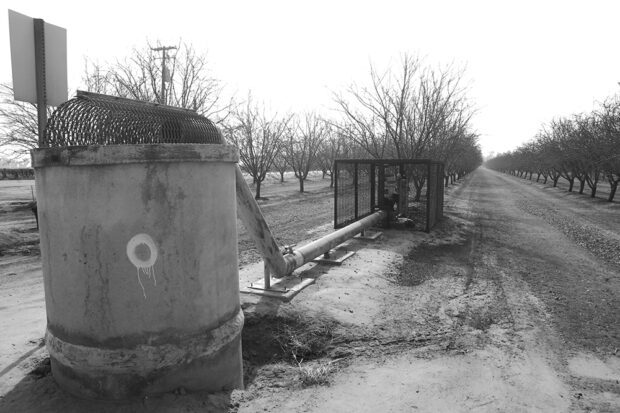
In April, the Southern San Joaquin Municipal Utility District (the “District”) filed a lawsuit against the City of Delano (“Delano”) over the newly established Niagara water bottling plant.
The District claims that Delano failed to conduct required environmental reviews and public hearings, which violates the California Environmental Quality Act (CEQA). It claims that the plant would draw 1,792 acre-feet annually from the aquifer under Delano, exacerbating the area’s water deficit.
Delano, however, argues that it complied by connecting the plant to its existing water system, bypassing new well regulations. The lawsuit seeks to halt the plant’s operations.
In the Central Valley, the consequences of declining aquifers are severe. When this happens, residential wells can either dry up or produce contaminated water. This disproportionately impacts rural and low-income communities that already have limited access to clean water.
Drying and overpumping wells would only worsen food and water insecurity in groundwater-dependent communities. With climate change and spiking temperatures, access to water is essential. Large-scale groundwater pumping has also led to land subsidence, causing fissures that might damage critical infrastructure such as roads or bridges.
The District, which was established in 1935, operates under contract with the U.S. Bureau of Reclamation to manage water distribution across approximately 67,000 acres in Kern County. It primarily serves agricultural lands, covering about 51,000 acres, though urban expansion has reduced irrigated areas.
According to the District, Delano is already experiencing a water deficit, regardless of whether existing or future wells are used. Delano and its residents depend on that depleting groundwater.
In an interview with SJV Water, Roland Gross, general manager of the District, mentioned that he heard a rumor about the possibility of a water plant in Delano a year ago. The District proceeded to advise both Niagara Bottling and Delano against such a project and warned that the District would oppose it.
Despite this, the District was blindsided when learning that the project was moving forward. The District found itself forced into filing a lawsuit to protect Delano’s groundwater because its warning had been ignored.
The lawsuit argues that Delano’s approval of the Niagara Bottling project violated CEQA in bypassing the required environmental review. The District focuses on the critically overdrafted state of Delano’s groundwater basin and argues that Niagara’s substantial daily groundwater extraction will worsen the deficit without adequate replenishment.
This could lead to serious environmental damage. The lawsuit underscores CEQA’s essential mandate for thorough environmental evaluations to mitigate such impacts.
The lawsuit also highlights CEQA’s mandate for comprehensive environmental reviews of projects with potential significant impacts because the District believes that Delano failed to conduct these reviews or determine the project’s exemption from CEQA requirements.
The District claims that approving the project without proper CEQA review constitutes an abuse of discretion and seeks a writ of mandate to annul all project approvals until full compliance with CEQA is achieved.
In addition, the lawsuit notes that the District has exhausted all administrative remedies and adhered to legal prerequisites before filing. It underscores Delano’s failure to hold a public hearing on the project, further breaching CEQA protocols.
The District asserts its right to recover attorney fees, emphasizing that the lawsuit serves the public interest by enforcing CEQA compliance. The suit requests a halt to the project’s operations until these legal and environmental standards are met, highlighting the broader implications for environmental oversight and community protection.
CEQA mandates a specific process to assess environmental impacts of proposed projects. Agencies must first conduct an initial study to determine the potential environmental effects.
If significant impacts are identified, an Environmental Impact Report (EIR) is required to detail these impacts and suggest mitigation measures. If mitigation can reduce impacts to less than significant levels, a mitigated negative declaration (MND) can be issued instead.
Crucially, CEQA mandates public participation, ensuring community members can voice concerns and provide input on proposed projects.
Neither Delano Mayor Joe L. Alindajao or the city’s attorney, Mark Hensley, would comment as the legal matter is pending.
Niagara Bottling replied as follows:
“Niagara Bottling’s new manufacturing facility will provide a range of employment opportunities and economic benefits to the Delano community without any negative impact on the city’s water supply. We have worked very closely with the City of Delano since mid-2022 to ensure the project adheres to all environmental requirements and development standards.
“We do not believe there is any merit to the Southern San Joaquin Municipal Utility District’s lawsuit. We are proud to have brought world-class manufacturing to Delano and look forward to growing our long-term partnership with the city.”
If Niagara Bottling has been doing everything in their power to comply with California’s regulations, why has it maintained practically no contact with the District or provided sufficient proof that the plant will not negatively affect the groundwater in Delano?
According to Niagara Bottling’s website, “The capital investment [for the plant] is estimated to be up to $160 million.” That seems like a lot of money to invest without going through the proper procedures, although to a company worth $28.4 billion, it might not be that significant.
